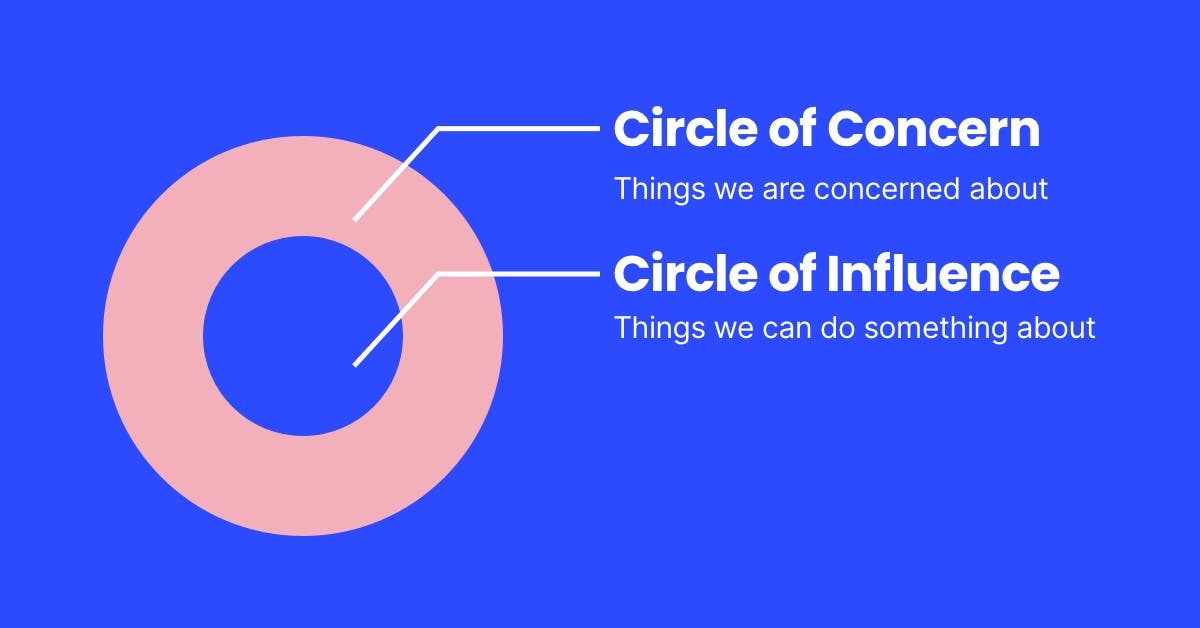marketing
Influence Vs Concern
Written on 19 September 2021
While I was at Buffer, I was often frustrated that we were not building things that felt obvious to me.
Two examples come to mind:
-
I wrote about how Twitter threads seem to perform better than tweets with a link in 2018. But we never built a feature for threads. Twitter threads are all over Twitter now, and tools like Typefully are wildly popular.
-
I saw that our blog post on the ideal social media image sizes was one of our highest-traffic blog posts, which meant people were constantly searching for ideal image sizes for social media. But we never built a cropping or sizing feature.
As the blog writer, I was constantly testing and writing about new social media ideas. I had a good sense of what our customers, social media managers, would want. But I felt nobody was listening to me.
I'm not sharing these to show how smart I am. On the contrary, I'm embarrassed that I thought and felt that way.
I was focusing on my circle of concern rather than my circle of influence.
Circles
In his book, The 7 Habits of Highly Effective People, Stephen Covey talked about the idea of a Circle of Concern and a Circle of Influence.
Our Circle of Concern contains the things we are concerned about. Within it, there are things that we have control over and things we have no control over. The former forms our Circle of Influence.

Proactive people focus their efforts in the Circle of Influence. They work on the things they can do something about. The nature of their energy is positive, enlarging and magnifying, causing their Circle of Influence to increase.
Reactive people, on the other hand, focus their efforts in the Circle of Concern. They focus on the weakness of other people, the problems in the environment, and circumstances over which they have no control. Their focus results in blaming and accusing attitudes, reactive language, and increased feelings of victimization. The negative energy generated by that focus, combined with neglect in areas they could do something about, causes their Circle of Influence to shrink.
Does the previous paragraph sound familiar?
When the team didn't build things that felt obvious to me, I was focusing on and blaming others. Why don't they listen to me? Why don't they ask me what I'm seeing in the market?
I was getting frustrated because I was focusing on things outside my control (my Circle of Concern) and not things I can control (my Circle of Influence). I would not have grown my influence by focusing on things outside of my control. Instead, I should have worked on myself.
Influence
Blaming others or feeling bitter when others don't listen to us is easy. But it doesn't help us get the influence we want. To grow our influence, we have to focus on ourselves. On things we can control. Our Circle of Influence.
I felt that they should have consulted me just because we are selling to marketers and I'm a marketer. But simply being a marketer doesn't mean they should consult me (on anything). I have to earn the right.
Over the years, I found a two-step approach that has work well for me:
- Exceed expectations for my role
- Understand other people's job
When I was a content marketer, I learned to write long-form guides, create graphics, craft emails, run ads, and more. I'm not an amazing content marketer but I would try to go beyond the basic expectations. For example, when my responsibility was only to write, I would also help think of social media captions and create graphics. That gradually made people trust me with more adjacent responsibilities.
It is also important to understand my teammates' jobs. From The 7 Habits of Highly Effective People again: Seek first to understand, then to be understood. When people feel that we understand their work and challenges, they are more likely to ask us for our opinions. When I was a product marketer, instead of overwhelming my product manager with another feature request, I once suggested we not build a feature in the pipeline and gave my analysis. Interactions like this helped me gain the trust of the product team, and I was involved in more discussions.
When I focus on how others behave, I got frustrated. But when I focused on improving myself, others would more likely want to seek my opinions—growing my Circle of Influence.
I'm not perfect, though. My attention still drifts to the things I cannot control (e.g. product). That is normal because I care about those things. But the best way to influence them seems to be to look inward.
How do you grow your influence in your team?